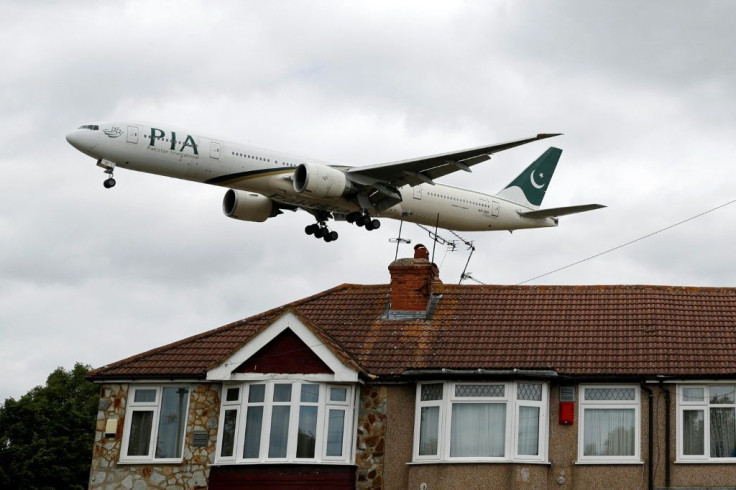Mechanical Fault Blamed For 2016 Pakistan Airline Crash
Engineers for Pakistan's scandal-hit state airline failed to repair a technical fault that led to a 2016 plane crash in which all 47 people on board died, a report has found.
Pakistan International Airlines (PIA) came under heavy scrutiny this year after one its planes came down among houses in Karachi, killing 98 people.
A furore later erupted after it emerged dozens of Pakistan pilots may have been holding fake or dubious licences, leading the US and EU to temporarily bar the airline.
A report published late Thursday by the Aircraft Accident Investigation Board said the 2016 crash of a twin-turboprop plane in the mountainous north was caused by at least two pre-existing "technical anomalies" -- including the fracture of one of the turbine engine blades -- and a third probable error.
The report found PIA's engineering department had failed to replace the faulty blade during routine maintenance a month before the accident, even though it "fulfilled the criteria for replacement".
The plane burst into flames during a flight from Chitral to the capital Islamabad, and was one of the country's worst aviation accidents at the time.
Rescuers, including hundreds of villagers, pulled charred remains from the wreckage, parts of which were found hundreds of metres away from the main site in Abbottabad district of Khyber Pakhtunkhwa province.
PIA said it "acknowledges that there were three latent factors that aligned together at the time of the crash".

"Had any of these factors happened in isolation, the consequences would not have been so devastating," it said in a statement.
The investigators noted that all three pilots had valid licences.
In May this year, just days ahead of the Muslim holiday of Eid al-Fitr, only two passengers survived when a PIA plane crashed into homes in Pakistan's southern city of Karachi.
An initial report blamed human error by the pilot, who had been discussing the coronavirus pandemic as the plane attempted to land, and air traffic control.
Weeks after the crash, Pakistan's aviation minister claimed around 260 of the country's 860 active pilots held fake licences or cheated on exams.
An inquiry into PIA later found 17 of its pilots had suspicious licences, with seven expelled.
Until the 1970s, Pakistan's largest airline was considered a top regional carrier but its reputation plummeted amid chronic mismanagement, frequent cancellations and financial struggles.
PIA, which is helmed by a serving air force officer, currently has a fleet of 31 planes and a payroll of about 14,500 workers.
© Copyright AFP {{Year}}. All rights reserved.





















